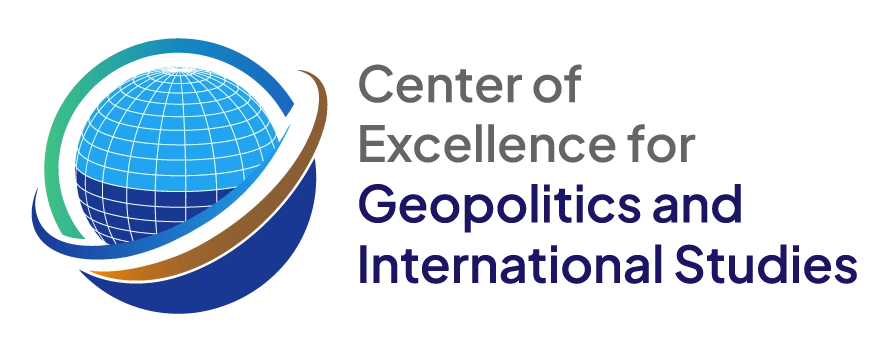Greenland and Panama in President Trump’s Cross-hair
Dr. Vijay Sakhuja
US President Donald J. Trump has sent Greenland and Panama in a tizzy. Without mincing words he expressed a desire to purchase Greenland from Denmark for “national security reasons”. President Trump also did not rule out the possibility of “impose[ing] tariffs on Denmark if it did not” accede to accomplish his desire. The Greenlanders are alarmed by Trump’s yearning for foreign territory, and its small population of 57,000 people have rebuked him for his outlandish thinking. Danish Prime Minister Mette Frederiksen made it clear that her country is ‘not for sale’ and that “Greenland is for the Greenlandic people”.
This is not the first time that President has spoken his intentions to acquire Greenland; in 2019 during his first presidency, Trump had made similar comments, but was vehemently rebuffed. But this time, President Trump dispatched his son to Greenland, who after taking note of the anger on the proposal among the Greenlanders, appears to have left the island with remarks “"No, I am not buying Greenland".
There is no doubt that Greenland is of high geopolitical and geostrategic value from at least three perspectives. First, it is located at the northern gateway to the Atlantic from the Arctic region and is dominated by Russia. Over half of the Arctic coastline belongs to Russia (24,140 kilometers) which is dotted with large number of military bases, offshore oil and gas infrastructure and Russian owned shipping sails through the Arctic ice assisted by Russian owned fleet of icebreakers, the largest in the world. This poses numerous strategic challenges to the US as well as the NATO which do not possess similar capabilities.
Second, Greenland is also part of the GIUK (Greenland Iceland and UK) gap and sits astride the shipping and supply route for NATO’s strategic operations. The island is also home to US military base which serves as the forward picket for detecting and warning for the incoming Russia aircraft and missiles targeted against the US mainland.
Third, the mineral and offshore energy resource wealth. The island is rich in rare earth elements which are critical for green energy transition technologies. According to Economist (2024) report nearly 86 percent of rare earth minerals supply chains are prone to disruption. However, there are challenges to mining these due to “cost-efficiency concerns, environmental implications, and complex legal and political dynamics”. The island is also rich in hydrocarbons, but in 2021 the government announced moratorium on energy exploitation in view of climate change crisis.
President Trump has also positioned Panama in the cross hair. Soon after his swearing-in he stated “China is operating the Panama Canal, and we didn't give it to China, we gave it to Panama. And we’re taking it back”. He accused Panama for not adhering to the original “purpose of our deal” and violating the “spirit of our treaty”. Furthermore, Panama is overcharging US ships including the US Navy. The 1977 US-Panama Neutrality Treaty bestows operational and administrative control of the Canal to ensure free and fair access to all countries. It also forbids and foreign military presence on the Panamanian territory.
The Canal is strategically important passageway connecting the Atlantic and the Pacific Oceans which in reality links the US’ east and the west coasts. China’s engagement in the canal began in 1999 and Chinese port developer Hutchison-Whampoa was awarded concessions to operate ports on both the Atlantic and Pacific ends of the canal. In 2017, Beijing succeeded in weaning Panama away from Taiwan diplomatically and established formal political-diplomatic and economic ties. It did not take long for Panama to join China’s Belt Road Initiative in 2018. It became the first Latin American country to do so and several others followed suit. By 2021, China had made significant inroads into the Laurentino Cortizo administration and contract for China’s Hutchinson Ports was renewed for 25 years. This was notwithstanding the domestic and international pressures.
Panamanian President José Raúl Mulino has dismissed President Trump’s claims noting that the Canal belongs to his country and there is “absolutely no Chinese interference”. The Panama government has ordered a “severe and strong” financial audit of the Panama Ports Company, a subsidiary of CK Hutchison Holdings. The Chinese have been quick to condemn President Trumps’ Panama idea of using military force to acquire the canal.
Finally, President Trump is attempting a “push back” against China by putting pressure on Panama. It fears that Panama too may gravitate towards China similar to the “troika of tyranny” i.e. Cuba, Nicaragua and Venezuela that are now firmly in the fold of China, Russia, Iran and North Korea (CRINK) block. However, President Trump’s idea of buying-using force to challenge sovereignty of another nation is unacceptable.
Dr. Vijay Sakhuja is Professor and Head, Center of Excellence for Geopolitics and International Studies (CEGIS), REVA University, Bengaluru.
